On 7 May the Tax Working Group of the British Chamber of Commerce for Luxembourg organised a Luxembourg Tax Update LIVE Webinar: “All You Need To Know (From Home): Hear It From The Experts”.
In the event the panellists highlighted the main tax measures the Luxembourg Government has introduced for individuals and companies, and covering Personal Taxation, VAT and Corporate Taxation.
In this article the Tax Working Group summarises the points covered in the Webinar:
Personal Taxation, by Aude-Marie Breden, Founder at MyOwnTaxPractice
The Luxembourg Government has introduced four main sets of tax measures:
1. Extension of the deadline to submit personal income tax returns for 2019. This is important in at least two situations:
- If you earn interest in another EU country, you may want to benefit from the same 20% flat rate that applies to interest earned in Luxembourg.
- If you are married and you want to change your tax regime (e.g. from joint taxation to individual taxation, or vice-versa)
2. Financial measures (also shared with corporate taxation, see below):
- A possible cancellation upon request of your two first tax advances for 2020
- A possible four-month extension to pay your outstanding taxes
3. Increased deduction for cleaning and child-minder expenses from €5,400/annum to €6,750/annum for 2020
4. For cross-border workers privately residing in France, Belgium and Germany: Days spent homeworking during the COVID-19 crisis will be considered (or deemed) as days worked physically in Luxembourg, and will not be counted towards the “tolerance” threshold.
Corporate Taxation, by Laetitia Borucki, Counsel at AKD
- Legal (corporate) and natural (individual) persons (as mentioned above) which realise a commercial profit, an agricultural and forestry profit, or a profit resulting from the exercise of a liberal profession and which experience financing and liquidity issues because of the COVID-19 pandemic, can benefit from specific tax measures. Thus, upon mere request (forms available on https://impotsdirects.public.lu/fr.html), taxpayers can obtain a cancellation of tax prepayments for the first two quarters of 2020 as well as an extension of the deadline for the payment of taxes. Also, these taxpayers benefit from an extension of the deadline for the filing of their income tax returns to 30 June 2020.
- Separately, most of the deadlines set for bringing proceedings before the Luxembourg courts in tax matters have been temporarily suspended or extended, keeping in mind that the deadlines for pre-litigations claims (such as réclamations) remain however fully applicable.
New (law of 7 May)! Extension of deadline for administrative claims before the tax authorities
VAT, by Michel Lambion, Managing Director at Deloitte Luxembourg
VAT collected on turnover and reimbursed on costs is a major cash flow for many businesses. The main announcements of the Luxembourg VAT authorities are:
- Automatic reimbursement of all VAT balances up to € 10,000
- If justified by covid-19, possibility to request a delay of payment via guichet.lu and non-applicability of penalties in case of late filing of VAT returns until further notice. On 12 May, the VAT authorities have announced that the tolerance for the filing of returns is revoked and that returns should be filed shortly but that forced collection of tax debts remains deactivated for the time being. (without further detail).
- Specific reimbursement procedure (for VAT balances not already reimbursed)
DAC6, by Andrew Knight, Partner at Harneys
- The EU Commission is seriously considering the numerous representations that have been made regarding an extension of some of the deadlines for DAC6 reporting in the context of the Covid-19 situation. While it is not expected that this will be in the form of a postponement of the introduction of DAC 6 on 1 July 2020, there is some room for optimism that some flexibility will be shown to take account of the negative impact of the current situation not only on intermediaries’ and taxpayers’ ability to comply but also on tax administrations’ readiness to provide guidance on the rules and an infrastructure for the submission of reports.
- One of the principal reasons for Luxembourg being a little late in enacting its legislation to implement DAC 6 was the debate generated by the original draft law regarding the issue of legal professional privilege. While the draft law gave the legal profession a measure of protection in recognition of its obligations of professional secrecy, it imposed a number of very onerous conditions some of which were themselves inconsistent with those obligations. In addition, a number of other professional bodies were unhappy that their own professions were not being accorded similar treatment. In the result, an exemption from reporting is given to lawyers, chartered accountants, and auditors but only to the extent that their involvement in reportable arrangements arises in the course of practising their professions.
- Intermediaries are subject to major operational challenges in meeting their DAC 6 obligations. In addition, in view of the number of intermediaries involved in cross border transactions involving Luxembourg, there is a significant risk of unnecessary and costly multiple and inconsistent reporting of the same transaction. It is in the interests of taxpayers to ensure that the DAC 6 compliance function is centralised either within their own organisations or delegated to an appropriate service provider.
Substance, by Romain Tiffon, Partner at ATOZ
- A critical topic that stems in these challenging times, directly resulting from remote working and travel bans, is Substance, and this may have a substantial bearing on unintended permanent establishment and tax residency. Whilst the OECD has issued a paper confirming that the temporary measures taken amid the COVID-19 crisis should not create unintended permanent establishments or alter the residency of companies under treaty rules, this should be assessed on a case-by-case basis in light of the existing set-ups and from a local law perspective.
TP, by Fernando Longares, Partner at EY Luxembourg
- The pandemic has impacted core elements of businesses around the world, ranging from supply chain and supplier disruption, decreased customer demand, liquidity and financing problems and personnel disruptions, all of which can have a significant impact on transfer pricing outcomes. Multinationals must balance immediate actions necessary for business continuity with longer-term strategies and sustainable transfer pricing policies. Detailed analysis and documentation of the business impact and potential changes from a transfer pricing perspective is key when navigating these challenging circumstances
For more information: https://www.bcc.lu/group/tax-group/












